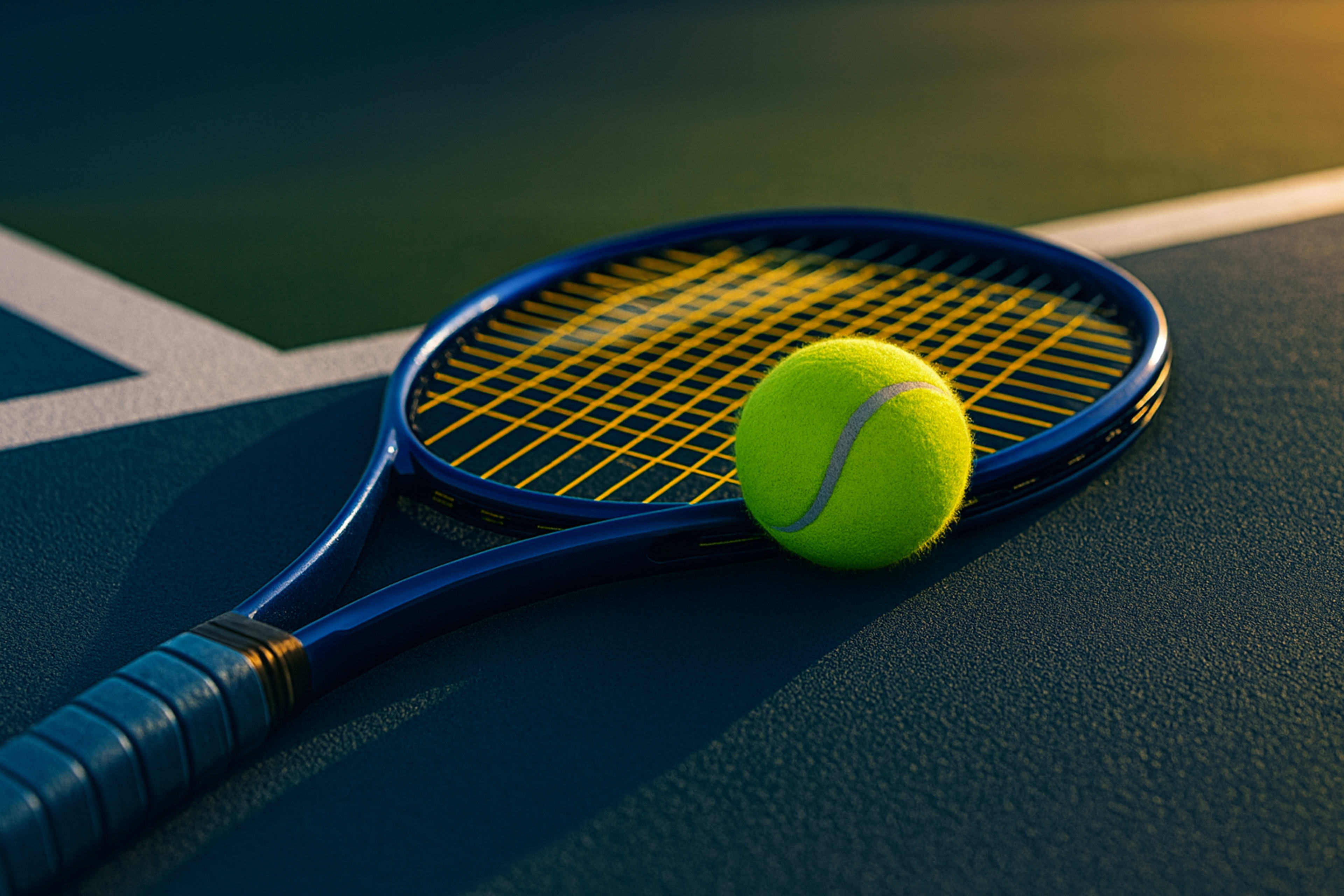In tennis betting, selecting the right tournament is just as important as choosing the right player. Each tournament offers a unique combination of surface type, weather conditions, match format, and player motivation—all of which can dramatically influence match outcomes and betting value. Grand Slams provide volume and liquidity, but the smaller ATP 250s or niche events like the Davis Cup often present softer lines and greater edge for sharp bettors. Betting success isn’t just about stats; it’s about context—and that context changes from one tournament to the next. Understanding when and where to bet enables you to anticipate upsets, exploit market inefficiencies, and apply the right strategy for the situation. This guide explores the most profitable tennis tournaments for bettors in Kenya and how to leverage their structure, schedule, and surfaces to your advantage.
Grand Slams: Big Matches, Big Betting Opportunities for Kenyan Players
The four Grand Slam tournaments—Australian Open, French Open, Wimbledon, and US Open—are the pinnacle of tennis and the busiest betting markets. Each Slam spans two weeks, features a 128-player draw, and uses best-of-five-set formats in men’s singles, making them perfect for high-volume betting and deep matchup analysis. However, each Slam comes with unique betting conditions that can sway outcomes and create specific chances for shrewd bettors.
| Tournament | Surface | Key Betting Traits | Top Markets to Target | Common Upset Zone |
|---|---|---|---|---|
| Australian Open | Hard (Medium-Fast) | High temps lead to physical fatigue; momentum shifts in long matches | Live Betting, Total Sets, Outright Winner | Middle rounds (3rd–4th) |
| French Open | Clay (Slow) | Long rallies, high break rate; favors grinders | Over Total Games, Player to Win a Set, Set Betting | Early rounds |
| Wimbledon | Grass (Fast) | Serve-dominant, short points; fast matches | First Set Winner, Tie-Break Markets, Ace Props | Early rounds (grass inexperience) |
| US Open | Hard (Fast) | End-of-season fatigue, night matches affect rhythm | Moneyline Underdogs, In-Play, Total Games | First & second rounds |
Australian Open (Hard Court – January)
Played during the peak of the Australian summer, the tournament often features extreme heat that can wear down players physically and mentally. Value often lies in live betting, particularly in longer matches where momentum shifts. Hard courts here are medium-fast, favouring aggressive baseliners and strong servers.
French Open (Clay – May/June)
Roland-Garros is the only Slam played on clay, the slowest surface on tour. This favours stamina-driven players and clay-court specialists. Matches tend to be longer, with higher break rates. Bettors can find value in over total games, player to win a set, and early-round upsets.
Wimbledon (Grass – June/July)
With its fast, low-bouncing grass surface, Wimbledon emphasizes serve dominance. Matches can be swift and efficient, making first set betting, tie-break markets, and ace props particularly attractive. Historical trends also show a higher success rate for big servers and experienced grass-court players.
US Open (Hard – August/September)
As the final Slam of the year, the US Open often sees players fatigued from the long season. Early rounds are ripe for upsets, and moneyline underdogs can present strong ROI for Kenyan bettors. Conditions are humid and fast-paced, with night matches adding another layer of volatility for in-play bettors.
ATP Finals: Strategic Betting on the Round-Robin Format
The ATP Finals cap off the men’s tennis season, featuring the top eight singles players and doubles teams in a unique round-robin format. Unlike standard knockout tournaments, each player is guaranteed three group-stage matches, giving bettors multiple chances to assess form and refine strategies throughout the event.
This format creates distinct betting value. Players who start slow can still qualify, while others might ease off once advancement is secured—leading to “dead rubber” matches where motivation is a key factor. Savvy bettors often capitalize on these situations by backing players against those who have already qualified in their final group match.
Held on indoor hard courts, the ATP Finals also favour aggressive baseliners and strong servers. The surface consistency and controlled environment reduce unpredictability, making pre-match analytics more reliable. Additionally, since all matches feature elite-level competition, small tactical edges, such as head-to-head records or fatigue from a long season, can significantly influence outcomes.
🔍 Betting Insights for Kenyan Players:
- Look for value in “dead rubber” group matches
- Favor players with strong indoor hard-court stats
- Leverage live betting to respond to momentum shifts
- Analyze motivation and qualification scenarios
- Consider season fatigue and historical late-season performance
Masters 1000 Events: Mid-Tier Tournaments with High Upset Potential
The ATP Masters 1000 series includes nine elite-level tournaments held throughout the season, sitting just below the Grand Slams in prestige and ranking points. These events attract top players but often carry unique betting dynamics due to their placement on the calendar—frequently before or after major tournaments—leading to variable player motivation and higher upset potential.
Masters tournaments feature best-of-three set formats, making matches shorter and outcomes slightly more volatile than Grand Slams. This structure benefits underdogs and increases the value of live and pre-match betting on momentum-driven players.
Certain events offer stronger betting angles than others. Here's their detailed comparison:
| Tournament | Surface | Timing (Season) | Key Betting Traits | Upset Potential |
|---|---|---|---|---|
| Indian Wells | Hard (Slow) | March (Pre-Clay) | Long rallies, fewer aces; favors baseliners | Moderate |
| Miami Open | Hard (Slow-Med) | March (Pre-Clay) | Humid conditions; consistent players thrive | Moderate |
| Monte Carlo | Clay (Slow) | April (Early Clay) | High break rates; surface specialists excel | High |
| Madrid | Clay (Fast Altitude) | May (Mid-Clay) | Elevation speeds up play; favors aggressive clay players | High |
| Rome | Clay (Slow) | May (Pre-RG) | Slower conditions; value in long matches | Moderate |
| Toronto/Montreal | Hard (Fast) | August (US Open Prep) | Slam prep; player fatigue & withdrawals common | High |
| Cincinnati | Hard (Fast) | August (US Open Prep) | Fastest Masters court; great for overs and short matches | Moderate |
| Shanghai | Hard (Medium) | October (Asian Swing) | Controlled indoor-like conditions; few surprises | Low |
| Paris Masters | Hard (Indoor) | November (Late Season) | Fatigue-heavy field; early exits from top seeds common | Very High |
500 & 250 Level Tournaments: Hidden Value in Less Popular Markets
While Grand Slams and Masters 1000 events dominate attention, ATP 500 and 250 tournaments offer some of the most underrated value for sharp tennis bettors. These lower-tier events often fly under the radar, which means less efficient markets, weaker bookmaker lines, and greater opportunities to exploit insider knowledge.
Because these tournaments attract a mix of top-50 players, local wildcards, and rising talents, match outcomes can be heavily influenced by travel fatigue, motivation, or even crowd support. Top players may use these events as tune-ups, while others see them as career-defining chances—creating a stark contrast in effort levels.
Shorter formats (best-of-three sets) also increase variance, which benefits underdog bettors who follow player form closely.
🎯 Betting Opportunities in ATP 500/250 Events:
- Spot local wildcards and home-court favorites with crowd energy
- Target clay or indoor specialists in niche environments
- Monitor player withdrawals or late fatigue after major tournaments
- Bet early before bookmakers adjust lines on lesser-known players
- Use the qualifier form momentum—especially for players with back-to-back wins
Tracking these often-overlooked variables can result in a consistent value that casual bettors often overlook.
Davis Cup & Olympics: Betting on National Pressure and Format Shifts
Unlike ATP tour events, the Davis Cup and Olympics introduce national pride, team dynamics, and unorthodox formats into the betting equation—creating high-volatility conditions ideal for strategic bettors.
| Feature | Davis Cup | Olympic Games |
|---|---|---|
| Format | Team-based ties (singles & doubles) | Individual competition, national representation |
| Match Length | Best-of-three sets (all rounds) | Best-of-three until final (men's); no 5-set |
| Surface | Varies by host nation (indoor/outdoor, any type) | Set by Olympic committee (usually hard court) |
| Frequency | Annual (with format changes over time) | Every 4 years |
| Motivation Factors | National pride, team loyalty, sometimes low | Extremely high—players represent their country |
| Top Player Commitment | Inconsistent participation | High commitment (esp . for medal opportunity) |
| Upset Potential | High—due to fatigue, lower-ranked players thrive | Very high—short format and emotional pressure |
| Betting Angles | Look for underdogs, live bet team dynamics | Bet on motivated underdogs, emotional edges |
| Volatility | High (esp . early rounds or “dead rubbers”) | Very high (especially first 2 rounds) |
🎯 Davis Cup
As a team-based competition, the Davis Cup brings emotional intensity, but also inconsistency. Match surfaces vary by host country, and ties are often scheduled shortly after major ATP events—leading to fatigue or reduced motivation from top players. With shortened formats (best-of-three) in early rounds, there's more room for upsets and surprise performances from lesser-known players.
🎯 Olympic Games
The Olympics occur every four years, meaning most players have limited experience in this setting. Unlike the ATP Tour, players compete without prize money, which shifts motivation toward national pride. The pressure can disrupt even top-seeded players, while others elevate their game. Short formats and unfamiliar playing conditions often result in higher upset frequencies.
📌 Betting Tips:
- Prioritize motivated underdogs over rankings
- Watch for surface and format changes
- Bet cautiously on top seeds under emotional pressure
- Use live betting during momentum swings in team ties
Challenger Tour: High-Risk, High-Reward Betting for Sharp Punters
The ATP Challenger Tour serves as the proving ground for future stars and a comeback path for injury-returning veterans. While it lacks the visibility of main-tour events, it offers some of the softest betting markets available—ideal for sharp punters with a deep understanding of the game.
Due to lower media coverage and limited public betting volume, lines are slower to adjust, and bookmaker pricing can be far less efficient. However, volatility is high. Players are inconsistent, withdrawals are frequent, and motivation varies wildly. Success in Challenger betting requires close tracking of player form, travel schedules, and local conditions.
🎯 Challenger Betting Tips:
- Watch early-round qualifier form—hot players can run deep
- Monitor local players performing above their ranking with home support
- Use Twitter, ITF data, and local news for insider intel
- Fade favorites with poor motivation or injury return
- Expect greater variance—manage bankroll tightly
Seasonal Insights: Best Tournaments by Calendar Phase
Tennis is a year-round sport, and betting success often hinges on understanding the seasonal rhythm of the tour. Surface transitions, player fatigue, and tournament placement can significantly affect match outcomes. Aligning your strategy with the calendar helps identify the best windows for value betting.
📅 Tennis Tournament Calendar & Betting Conditions
| Calendar Phase | Key Tournaments | Surface Type | Betting Conditions & Insights |
|---|---|---|---|
| Jan – Mar | Australian Open, Indian Wells, Miami | Hard (Medium/Slow) | Early-season form, physical endurance, live betting edge |
| Apr – Jun | Monte Carlo, Madrid, Rome, French Open | Clay (Slow) | Long rallies, clay specialists, break-point value |
| Jun – Jul | Queen’s Club, Halle, Wimbledon | Grass (Fast) | Short points, serve dominance, tie-break markets |
| Aug – Oct | Toronto, Cincinnati, US Open | Hard (Fast) | Late-season fatigue, high upset potential |
| Nov | Paris Masters, ATP Finals | Indoor Hard | Motivation mismatches, controlled conditions |
Which Tournaments Offer the Best ROI for Bettors?
While Grand Slams offer unmatched volume and visibility, they also attract sharp money and tighter lines. For consistent value, bettors often find stronger ROI in ATP 250s, Challenger events, and late-season tournaments like the Paris Masters, where market inefficiencies are more common. High-stakes but format-driven events like the ATP Finals or Olympics reward those who analyze context over rankings. At BettingRanker, a trusted source for sports betting insights, we emphasize the importance of understanding not just who is playing—but where, when, and why. Tournament context is the edge that separates casual picks from calculated wagers.
FAQ
Are Grand Slam tournaments good for betting in Kenya?
Yes, Grand Slams are excellent for betting due to the sheer number of matches and available markets. However, be aware that these tournaments attract experienced bettors, leading to competitive odds. Focus on niche markets like set scores, over/under games, and live betting to find an edge.
Why are ATP 500 and 250 tournaments valuable for betting?
ATP 500 and 250 events often have less media coverage and public interest, which can result in more favorable odds. Keep an eye out for local players, surface specialists (clay, grass, hard court), or players who might be undervalued after participating in larger tournaments.
What makes the ATP Finals unique for betting?
The ATP Finals' round-robin format presents unique betting opportunities, such as matches where one player has already qualified and the other doesn't. Betting against players who have already secured their spot or have nothing to play for can be a smart strategy.
Can you bet on Davis Cup and Olympic tennis in Kenya?
Yes, you can bet on both the Davis Cup and the Olympic Games. These events are known for their unpredictability due to national pride, unfamiliar team formats, and the unique motivations of players representing their countries. This can create value, especially when betting on underdogs.
Are Challenger Tour events worth betting on?
Challenger events can be profitable but are generally more unpredictable. Skilled bettors can find opportunities by monitoring qualifier performance, local advantages (players familiar with the conditions), and changes in betting lines, particularly in the early stages of the tournament.









